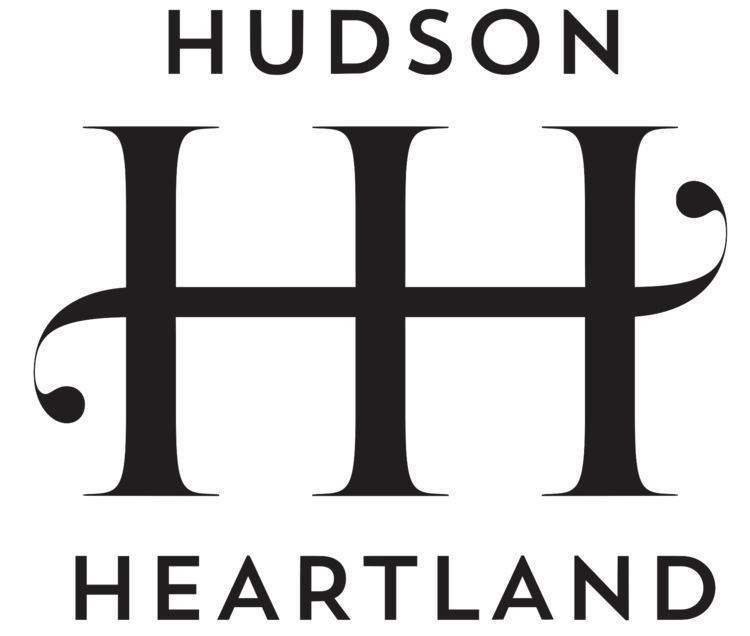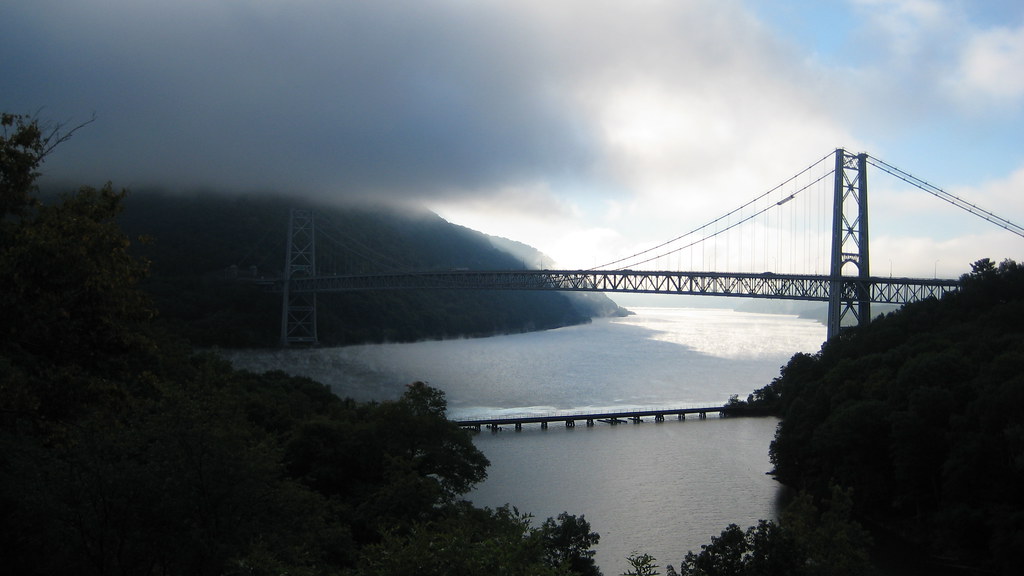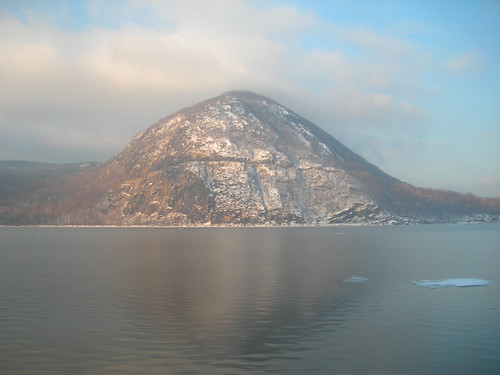Today the children and I drove this big loop, about forty miles, on the trail of eagles; down one side of the river, across, up the other side, across again. We were the only people outside, and that for just a few foolish minutes at a park in Peekskill near the train station. We stood facing the water, looking upriver in the direction of the Worragut and World's End, into the teeth of a hellacious north wind that drove whitecaps into breakers into the shore a hundred feet before us.
Flickr had told me to look there for eagles. Why do I listen to the Internet?
It was an arctic wind, too, twenty degrees, like
Skadi’s own air conditioner. In the first minute the kids mounted an enthusiastic assault on the vast Structure-for-Play that's there beside the water, but the lad was hunching into his coat and the lass was crying before very long. My instincts told me that they were learning valuable life lessons through suffering. Except I was also freezing my ass off, so I let them get back in the car. Eagles be damned.
I'm a desperate tour guide on such excursions, rushing to tell my son everything I can about the world, as though there won't be enough time, as though I want to fill him up and leave none of his knowledge to chance. So I babble. Every stray memory, landmark, historical or scientific fact sparked by the landscape comes out. "You remember there we attended the Shad Fest, and the precision skydivers from West Point came down? You met Robert Kennedy there. You were one." He's thinking about air hockey, and how thirsty he is. "That's Breakneck Ridge. I climbed most of it with Uncle Larry once. I couldn't finish because I was too heavy and out of shape. That's Bannerman's Castle, but the island is also called Pollopel." He knows this, knows it was an ammo dump. He's seen it on Google Earth.
We pull over in Cold Spring, looking north through the Wind-Gate between Storm King and Breakneck. Route 218
cuts across Storm King's face. It's the northernmost of the Highland peaks on the west side of the Hudson, to our far right as we face the river from a parking lot near some condos. Strung out to the south are similarly rocky, majestic peaks, directly across the narrow fjord. There are no eagles, but they'd look right against those icy cliffs. We sit there a minute. The little one is sucking her thumb, eyelids heavy.
"What's that, like, path across Storm King?" the boy asks from the back seat. I tell him it's a road. There's a pause. "It looks like a lizard," he says.
"What does?" I turn to see what he's talking about.
He's talking about the entire ten-mile swath of the visible Highlands on the west bank of the river. He explains, starting with the head, Storm King, and its slash of a mouth, then the Crow's Nest forming the back, Target Point a forelimb. The ridge declining southward is a tail where it descends toward West Point. Of course it's obvious, once he points it out. Lizard, check.
We have different frames of reference, different senses of scale. He has no problem with a ten-mile-wide canvas. There's nothing so giant that it can't be made into something familiar and small. He's unspoiled by any notion of his own insignificance. On that we agree; he and his sister are the central objects in our landscape. Their small forms bear Jupiter's gravity and the encoded wisdom of generations. How can I possibly teach them anything?
Later, at home, he asks me if a crocodile is as big as a school bus. "No," I lie, knowing that some salt-water crocodiles are longer than the bus he takes to kindergarten. He clarifies. "No," he says. "Not end to end. I mean, could a crocodile
eat a schoolbus."
Ah. "No," I tell him. "Absolutely not."
•








